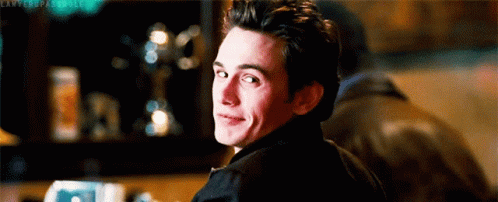The Pittsburgh Press (April 12, 1943)

Roving Reporter
By Ernie Pyle
In Tunisia –
Down in central Tunisia, in the village of Fériana, there is a little country hotel where four or five of us correspondents used to drop in now and then for a day or two to sleep under a roof and eat some of Papa’s meals.
The hotel is run by a French family. Papa is big and mustached, and always wears a cap and a dirty apron and always has a burned-up cigarette in his mouth. He takes an instant like or dislike to newcomers, and the ones he doesn’t like get short shrift.
Mama is plain and gray and sweet, and although she can’t speak a word of English, paradoxically she can understand it. She never does a bit of the cooking; that is Papa’s job and privilege. She sits at the kitchen table and sews and knits.
There are three boys in the vicinity of 15, all handsome and superior boys. Roget is our favorite, because he studied English in his school and we can converse with him. The three boys serve the meals. They also act as chambermaids.
Once when I was trying to write in the hotel, Roget came in to clean up. Immediately he called his two brothers, and for half an hour they all stood in a circle looking over my shoulder admiringly – not at the magic of my wonderful words, but at how fast my fingers worked the keyboard.
The hotel had one very dirty toilet, and in the rooms were merely washbowls and kerosene lamps. French soldiers slept on straw in the little lobby. There were always at least 10 people in the kitchen, including a few neighbors, some stray French privates helping wash the dishes, and a French officer or two trying to learn English from Roget.
Jack could do no wrong
Jack Thompson of The Chicago Tribune found this place way back in November. As far as I know, it was the only operating hotel in all of central Tunisia. Jack kept two rooms there all winter, and they were like a headquarters. Jack himself might not be there one night a week, but if any other correspondents blew in, we’d just walk in and settle down as though the rooms belonged to us.
Jack could do no wrong in Papa’s eyes. Papa was so prejudiced in Jack’s favor that he would never serve breakfast to anybody else until Jack came down for his.
Frank Kluckhohn of The New York Times used to get up early, hoping to get breakfast and get started out; and after a while he’d come back upstairs alternately cussing and laughing at the incongruity of being refused breakfast until Monsieur Thompson also got ready to eat.
Papa just sort of tolerated me. He didn’t detest me as he did some of the others; it was just that I hardly existed in his eyes. But I was one of Mama’s favorites. She always got out her private homemade confiture (in this case, marvelous peach jam) for me when I ate alone with the family in the kitchen.
I remember one morning when four of us correspondents were eating breakfast in the kitchen, and Mama got out the jam and made it quite plain it was for me alone. But Frank Kluckhohn didn’t follow her reasoning, and helped himself to some of my jam. Fortunately, he didn’t see the daggers Mama was looking at him. Poor Frank, he had a tough time eating in that place.
Then the Germans came
The little hotel was a peaceful place for many weeks. Not much of the American Army knew about it. We correspondents and a few fliers from a near-by airdrome, who came in once a week for dinner, were the only Americans around.
And then all of a sudden, everything changed. The battle lines drew near. Within an hour one day the village was deluged with American troops. Trucks with Negro drivers filled the olive grove across the street. The grove on the other side was pitted deep with sudden slit trenches and great holes where tanks and half-tracks were nearly hidden in the ground.
Soldiers flowed in and out of the hotel like water. The Germans were coming nearer. A couple of us correspondents sped in from another front, packed a few things into our jeep, and Papa and Mama and the boys stood waving at us as we dashed off again.
The next thing we knew, Fériana was gone. The end came suddenly, and Papa and Mama and the boys had to get out in the middle of the night. Some of us saw them next day – nearly 30 miles away – trudging uphill behind a mule cart with a few of their things on it.
The German tide that washed over Fériana was brief, but the town was shelled by both sides. Maybe Papa and Mama and the boys will have things fixed up again by the time we get back there. No doubt the Germans cleaned out Papa’s meager wine cellar. I don’t care about that, but I hope they didn’t find Mama’s peach jam.
